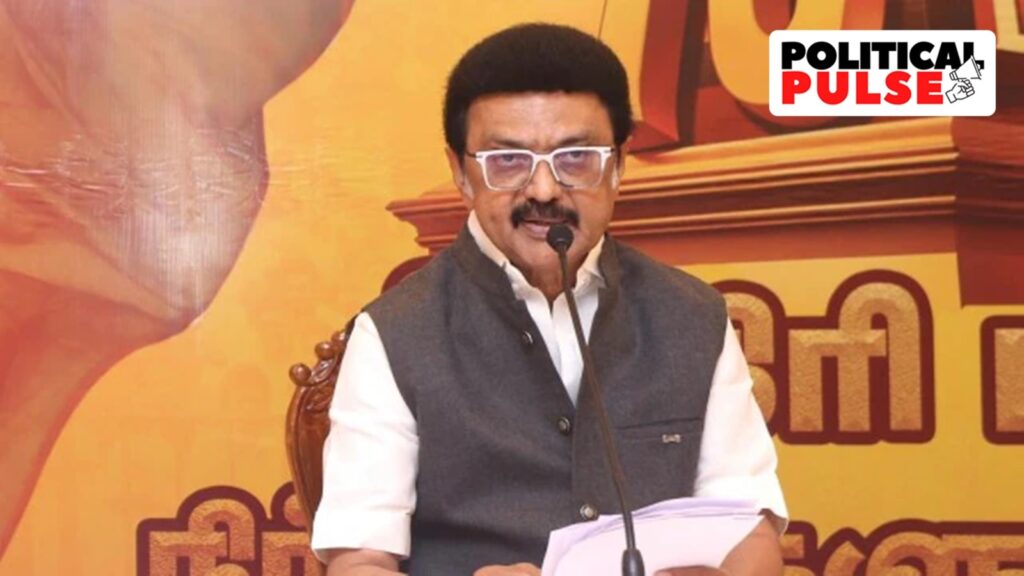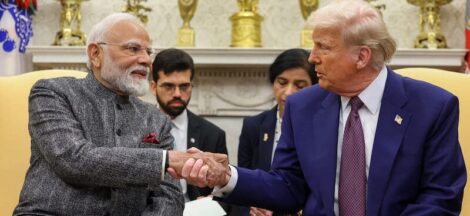By K Raveendran
The euphoria surrounding the enactment of ten Tamil Nadu legislations without presidential assent may be short-lived. What initially seemed like a landmark assertion of state rights has now been complicated by Chief Minister M.K. Stalin’s subsequent decision to form a three-member panel under the chairmanship of retired Supreme Court Justice Kurian Joseph to study state autonomy. While the initial legislative move was celebrated as a bold stand against the overreach of the Centre and the governor’s discretionary powers, the decision to constitute a panel risks neutralising the very momentum that had been gained. In fact, it not only threatens to blunt the significance of the legislative assertion but also opens the door to a reimagining—perhaps even a restoration—of the governor’s role in ways that were recently curtailed.
The key problem lies in the implications of forming a panel at this particular moment. Rather than consolidating the moral and political high ground the Tamil Nadu government had seemingly attained, Stalin’s move has now triggered a series of constitutional and political uncertainties. The panel’s formation has made it incumbent that the recent Supreme Court verdict, which clipped the wings of the governor’s office in matters of legislative assent, be revisited. That verdict, issued by a two-member bench, had been widely interpreted as a corrective step, aligning gubernatorial conduct with the democratic will of elected assemblies. But with the Stalin government effectively reopening the debate on state autonomy through this new initiative, the possibility that this judicial pronouncement may now require review is not just hypothetical—it is, in many ways, unavoidable.
The review of that verdict could have far-reaching implications. The very powers that the Supreme Court appeared to have circumscribed—especially concerning the governor’s discretion—might now be brought back into sharper focus, potentially leading to a reinterpretation that revalidates gubernatorial authority. Ironically, an initiative ostensibly aimed at reinforcing state autonomy may end up reinstating the importance of the governor in the legislative process. That outcome would be paradoxical but not unexpected, given the complex constitutional and political terrain this move is likely to enter. The larger question is whether Tamil Nadu’s move represents an assertion of power or an inadvertent concession to the structures it seeks to resist.
From a federal perspective, the move raises the stakes in an already tense Centre-state relationship. There has been a growing perception in several non-BJP-ruled states that the Union government, through its appointees like governors and its control over resources, has been undermining the autonomy of state governments. The successful passage of the ten legislations without presidential assent had symbolically pushed back against this perception, showing that a determined state government could circumvent procedural bottlenecks. But by initiating a panel to “study” autonomy, the Tamil Nadu government appears to cast doubt on the very autonomy it just exercised. Rather than consolidating the precedent it set, it now embarks on a theoretical exploration of what autonomy should look like, thereby shifting the discourse from practice to hypothesis.
It would have made far more institutional sense if the central government had taken the initiative to form such a committee. Federalism in India is not just a state issue—it is a national issue. A central government-sponsored committee would have had a wider mandate, broader acceptance, and a stronger constitutional basis to examine the nuances of Centre-state relations. Alternatively, the Stalin government could have chosen a more grounded and local path by initiating a study on strengthening district-level autonomy. Instead, by choosing to examine state autonomy in such a high-stakes context, the Tamil Nadu government now finds itself entangled in questions of constitutional mandate and institutional propriety.
The panel, headed by Justice Kurian Joseph, is itself emblematic of the contradictions inherent in this move. Justice Joseph is known for his strong adherence to constitutional principles and his deep respect for institutional processes. It is difficult to imagine him agreeing to participate in an exercise that borders on appropriating functions that once belonged to the Constituent Assembly. After all, the Assembly that drafted the Constitution did so with a specific historical mandate, representing the will of the people during the foundational moment of the Republic. Any serious discussion on reshaping the contours of state autonomy would inevitably brush against the boundaries set by the Constituent Assembly. For the Justice Kurian Joseph panel to recommend meaningful changes in the autonomy framework, it would have to tread into territories that are constitutionally out of bounds for any state government-formed body. There is no mandate to recreate the foundational balance of power between Centre and states through such a committee.
It will take more than courage for Justice Joseph even to examine the terms of reference of the panel, let alone chart the course of its study. His participation comes with the burden of constitutional integrity. Every aspect of the panel’s scope will be scrutinized for overreach, not only by the legal community but also by political actors who are wary of unilateral moves in matters of national constitutional significance. Any recommendation that hints at structural changes in the federal framework will likely be met with resistance, not just from the Centre but also from the judiciary, which has repeatedly upheld the sanctity of constitutional demarcations between various levels of government. In a nation where the balance of power is not merely legal but deeply political, even well-intentioned steps can have unintended consequences.
Furthermore, there is a real risk that the ten state laws that had become operational without presidential assent may now be viewed through a new lens—one that questions their validity. It opens the door for a judicial review that may not only strike down the laws but also set a precedent that undermines similar efforts in other states. What was once seen as a bold stride forward may now be recast as a constitutional misstep. (IPA Service)




 Selective Political Witch-Hunting In India Nearing Its Climax
Selective Political Witch-Hunting In India Nearing Its Climax 